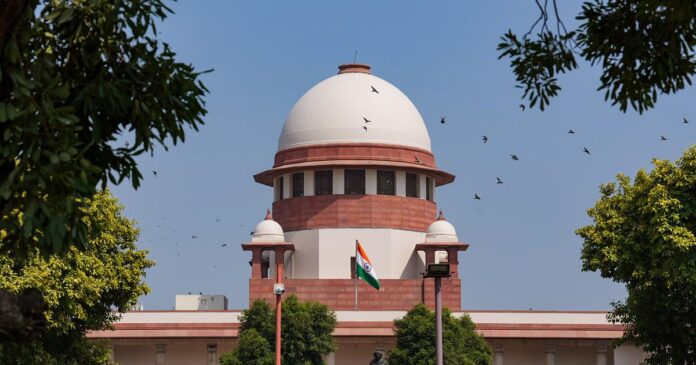Recently, a Division Bench of the Supreme Court has issued a notice in a Special Leave Petition filed by the Save Old Goa Action Committee, assailing an order passed by the Bombay High Court. By its impugned order, the High Court(Goa Bench) has set aside an order passed by the Archaeological Survey of India (ASI) to demolish a residential house, in the UNESCO heritage zone in Old Goa city citing violation of natural justice principles.
The Bench, comprising Justices BV Nagarathna and Ujjal Bhuyan, while issuing notice, expressed concerns about the High Court setting aside the said matter prematurely instead of remitting the matter back to ASI for re-consideration.
“The cost of shipping has become just ridiculous.”
Key points:
- Prepare to be paying up to $7 a cup by the end of the year
- Shipping costs and natural disasters in coffee regions are being blamed for the price increase
- Australians consume one billion cups of coffee annually, but cafe owners say an increase in price won’t change that
The present appeal revolves around a house built in the heritage area of Old Goa. The same is located in the protected area of two centrally protected monuments i.e. Church of St. Cajetan and Viceroy’s Arch of Old Goa subject. The new structure drew protests from various organisations including Save Old Goa Action Committee who claimed that the construction violated several rules.
Case Background
On August 16, 2022, Director General, ASI, had ordered the removal of the said house under Section 19(2) of the Ancient Monuments and Archeological Sites and Remains Act, 1958.

Section 19 puts restrictions on the enjoyment of property rights in the protected area and prohibits any person including the owner or occupier of such protected area from constructing any building within the protected areas or carrying out any mining, quarrying, excavation, blasting or any operation of a like nature in such area, or utilise such area or any part thereof in any other manner without the permission of the Central Government. As per the said Act, protected area means any archaeological sites and remains which are declared to be of national importance by or under this Act.
When the said order of ASI was challenged before the High Court in its writ jurisdiction, it observed that no Show Cause Notice or any opportunity was given to the present respondent or to the erstwhile owners before passing such impugned order. Thereafter, the Court cited catena of judgments which elucidates the aspect of natural justice.
Moving forward, the Court noted that any order which affects the civil rights of the party has to follow the principles of natural justice. “Enquiries which were considered administrative at one time are now being considered as quasi-judicial in character. Arriving at a just decision is the aim of both quasi-judicial enquiries as well as administrative enquiries. An unjust decision in an administrative enquiry may have more far reaching effect than a decision in a quasi-judicial enquiry”
“The minimum expectation from such authority is to give an opportunity to the party concerned to put up his defence before passing such drastic order of demolition. Such order cannot by any stretch of imagination be construed as purely an administrative function. Powers given to such authority under the statutes must be exercised by the procedure laid down by law, which includes following principles of natural justice.”
Based on these observations, the High Court quashed ASI’s order and held:
Case Title: SAVE OLD GOA ACTION COMMITTEE v. CORVUS URBAN INFRASTRUCTURE LLP & ORS.
“Having said so, we clearly observe that the impugned order dated 16/08/2022 (Exh.-A) passed by the Additional Director General, Archaeological Survey of India, New Delhi is bad in law and requires to be quashed and set aside for not following principles of natural justice. Consequently, the petition must succeed.”
She said the industry could eventually emulate the gin industry, with boutique operations cropping up across the country.
“I think the demand for Australian coffee at the moment is an ever-changing landscape and more and more Aussies are starting to question where their food comes from, who is growing it”
“What you will get is all these kinds of niche coffee plantations who develop a very unique flavour profile and then market in funky packaging and appeal to certain markets,” she said.
“That’s where I see the next stage of the Australian coffee industry going.”



